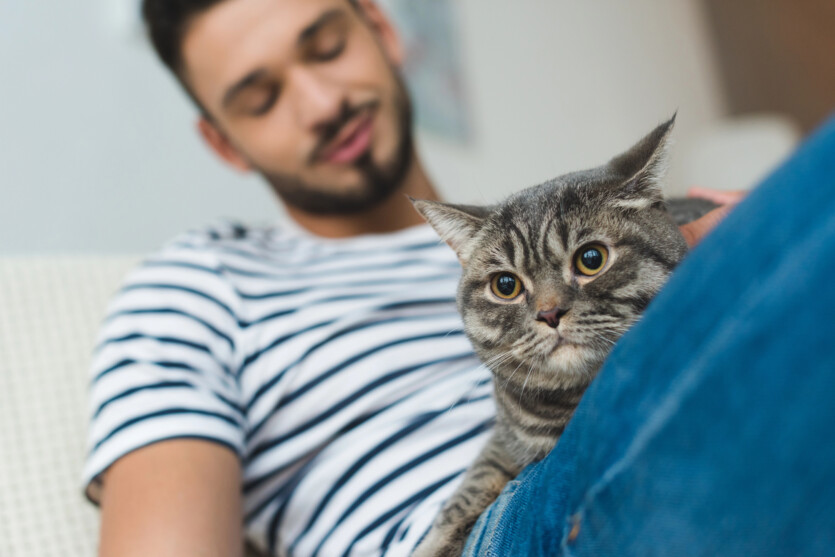
Psychologists from the University of Liverpool in the UK have developed a questionnaire that has to help cat owners find out what psychopathic traits their pet may have.
It is noted, that the so-called triarchic model of psychopathy determines the level of courage, meanness, and disinhibition to assess psychopathic manifestations. The test is usually used in cases of humans, but this time British psychologists decided to apply it to cats.
Psychologist Rebecca Evans and her colleagues developed a questionnaire for cat owners, which can be completed to obtain a CAT-Tri+ score, which will determine the level of psychopathy of your cat. According to the researchers, this should facilitate the relationship between cats and their owners.
According to the authors of the questionnaire, they were inspired to create it by their own pets with interesting differences in character. In addition, the researchers sought to determine how a cat’s owner’s perception of its level of psychopathy would affect their relationship.
According to Rebecca Evans, her own cat, Gambol, scored relatively high on the disinhibition scale, which characterizes him as noisy, attention-seeking, and easily excitable. The questionnaire asks owners to answer how enthusiastic their cat is about exploring the environment, how it reacts to danger and other cats, whether it needs constant encouragement, and how well it follows the rules of the house.
In addition, accompanying behavioral patterns are examined, including sudden mood changes, aggression toward strangers, and reactions to being petted. In each case, cat owners can rate their own pets on a scale from «does not describe my cat» to «very well fits my cat».
The questionnaire also includes other factors that measure hostility to people and other pets to understand the relationship between the cat and its owner. Based on the results of the 46 questions, cat owners can calculate the CAT-Tri+ score to determine their cat’s level of psychopathy.
To create the final version of the questionnaire, psychologists analyzed the relationship between 2,422 pet owners and their animals. The researchers also managed to identify some patterns in the volunteers who answered the questions.
«Disinhibition and pet unfriendliness predicted a better relationship between the cat and the owner; meanness and insolence predicted a lower quality of relationship», — the authors of the study emphasize.
They hope that their questionnaire will help cat owners understand cats better, which will reduce the number of animals that end up in shelters due to psychological behavior.
Scientists have found a new way to communicate with cats — it’s a special smile
The study was published in the journal Journal of Research in Personality
Source: ScienceAlert

Spelling error report
The following text will be sent to our editors: